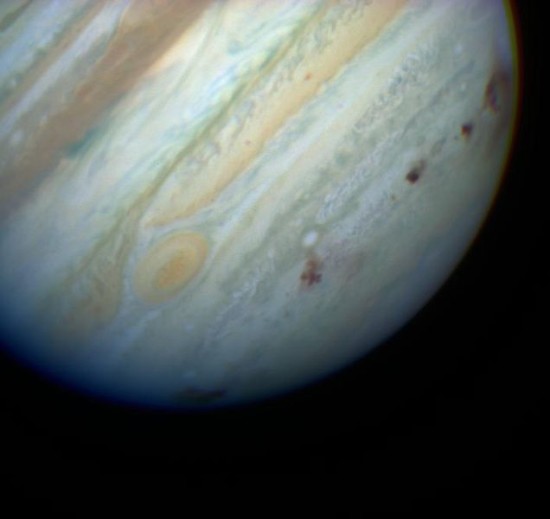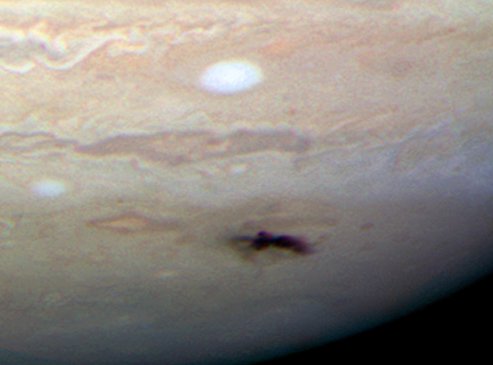Here’s a question we get regularly:
Is it true that Jupiter could be considered our friendliest planet because – without Jupiter – comets would be more likely to hit us?
The answer is yes … and no. Some astronomers believe that one reason Earth is habitable is that the gravity of Jupiter does help protect us from some comets. Long-period comets, in particular, enter the solar system from its outer reaches. Jupiter’s gravity is thought to sling most of these fast-moving ice balls out of the solar system before they can get close to Earth. So long-period comets are thought to strike Earth only on very long timescales of millions or tens of millions of years. Without Jupiter nearby, long-period comets would collide with our planet much more frequently.
In addition, in recent decades, astronomers have been able to see signs of comets that have crashed into Jupiter. There was Comet Shoemaker-Levy 9 in 1994. And, in 2009, astronomers observed a dark gash in one side of the giant planet, likely caused by a comet.



But Jupiter creates both good and bad conditions for earthly life. Consider that its powerful gravity prevented space rocks orbiting near it from coalescing into a planet, and that’s why our solar system today has an asteroid belt, consisting of hundreds of thousands of small flying chunks of debris.
Today, Jupiter’s gravity continues to affect the asteroids – only now it nudges some asteroids toward the sun, where they have the possibility of colliding with Earth.
Another interesting story comes from several centuries ago. The late Brian G. Marsden, former director of the the International Astronomical Union’s Central Bureau for Astronomical Telegrams, related it to Dennis Overbye of the New York Times in 2009, shortly after the dark gash appeared on Jupiter. It’s rare for a comet to come within 1 astronomical unit of Earth (that is, one Earth-sun distance, 92 million miles, or about 150 million kilometers). But, in the year 1770, a Comet Lexell streaked past Earth at a distance of only a million miles. Dr. Marsden told Overbye that :
… the comet had come streaking in from the outer solar system three years earlier and passed close to Jupiter, which diverted it into a new orbit and straight toward Earth.
The comet made two passes around the sun and in 1779 again passed very close to Jupiter, which then threw it back out of the solar system.
It was as if Jupiter aimed at us and missed.
So is Jupiter Earth’s protector? The answer is … sometimes!
Enjoying EarthSky? Sign up for our free daily newsletter today!











